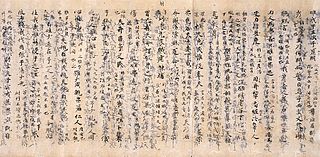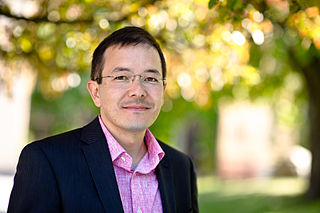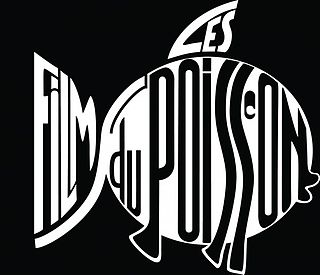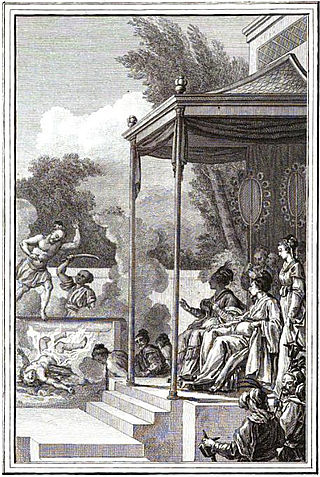
Shangdi, also written simply, "Emperor", is the Chinese term for "Supreme Deity" or "Highest Deity" in the theology of the classical texts, especially deriving from Shang theology and finding an equivalent in the later Tian of Zhou theology.

A courtesy name, also known as a style name, is a name bestowed upon one at adulthood in addition to one's given name. This practice is a tradition in the East Asian cultural sphere, including China, Japan, Korea, and Vietnam.

Tiān (天) is one of the oldest Chinese terms for heaven and a key concept in Chinese mythology, philosophy, and religion. During the Shang dynasty, the Chinese referred to their supreme god as Shàngdì or Dì (帝,"Lord"). During the following Zhou dynasty, Tiān became synonymous with this figure. Before the 20th century Heaven worship was an orthodox state religion of China.

The Book of Documents or Classic of History, also known as the Shangshu, is one of the Five Classics of ancient Chinese literature. It is a collection of rhetorical prose attributed to figures of ancient China, and served as the foundation of Chinese political philosophy for over 2,000 years.

Shaun Tan is an Australian artist, writer and film maker. He won an Academy Award for The Lost Thing, a 2011 animated film adaptation of a 2000 picture book he wrote and illustrated. Other books he has written and illustrated include The Red Tree and The Arrival.
The Book of Lord Shang is an ancient Chinese text from the 3rd century BC, regarded as a foundational work of "Chinese Legalism". The earliest surviving of such texts, it is named for and to some extent attributed to major Qin reformer Shang Yang, who served as minister to Duke Xiao of Qin from 359 BC until his death in 338 BC and is generally considered to be the father of that state's "legalism".
A tree is a perennial woody plant.

Les Films du Poisson is a French film production company founded in 1995 by Yael Fogiel and Laetitia Gonzalez. The company has produced more than a hundred films: features, documentaries and shorts. Many have won awards in France and around the world. In 2011 France's Academy of Film names Les Films du Poisson Best Producers.

Three Kingdoms is a 2010 Chinese television series based on the events in the late Eastern Han dynasty and the Three Kingdoms period. The plot is adapted from the 14th century historical novel Romance of the Three Kingdoms and other stories about the Three Kingdoms period. Directed by Gao Xixi, the series had a budget of over 160 million RMB and took five years of pre-production work. Shooting of the series commenced in October 2008, and it was released in China in May 2010.

Nanjing Iron and Steel Co., Ltd. is a publicly traded steel maker based in Nanjing, Jiangsu Province, China. The parent company of NISCO is Nanjing Nangang Iron and Steel United Co., Ltd., a joint venture of Hong Kong listed company Fosun International and Chinese state-owned enterprise Nanjing Iron and Steel Group in a 60–40 ratio.

The Tree is a French-Australian 2010 film co-produced between Australia and France. It was filmed in the small town of Boonah in Queensland, Australia, and follows the lives of Dawn and her four children after the unexpected death of her husband Peter. The film is an adaptation of the 2002 debut novel Our Father Who Art in the Tree by Australian writer and performer Judy Pascoe. The film closed the Cannes Film Festival on 23 May 2010 following the Awards Ceremony and received a seven-minute standing ovation. In addition, The Tree premiered at the 2010 Sydney Film Festival. The film is distributed in the US by Zeitgeist Films, opening on 15 July 2011 in New York, on 22 July in Los Angeles, Boston and Washington, D.C., and throughout the country over the summer.
Teviotville Tree is a large Moreton Bay fig tree in Teviotville, Scenic Rim Region, Queensland, Australia that featured in the movie L'Arbre or The Tree in English. The tree is a large, 130-year-old fig tree which was considered by the French producers to be a perfect tree for the movie, after an exhaustive search for just the right one.
Judy Pascoe is the Australian author of the book Our Father Who Art in the Tree. The book was made into the 2010 feature film The Tree.

Riad Sattouf is a French cartoonist, comic artist, and film director. Sattouf is best known for his award-winning graphic memoir hexalogy L'Arabe du futur and for his award-winning film Les Beaux Gosses. He also worked for the satirical French weekly Charlie Hebdo for ten years, from 2004 to mid-2014, publishing drawing boards of one of his major works La vie secrète des jeunes.
Goalpost Pictures is an Australian film production company founded and run by Rosemary Blight, Ben Grant, Kylie du Fresne, and Cass O’Connor.

Boyi and Shuqi were two Dongyi brothers from Guzhu, a Dongyi state (諸侯國) under Shang Dynasty. According to tradition, they lived at the time of the transition between the Shang dynasty and the Zhou dynasty. They are remembered in literary culture for their personal and moral virtue, loyalty, and pacifist idealism. Sometimes they are referred to together just as "Boyi", after the elder brother. They were natives of the state of Guzhu, a vassal state of the Shang dynasty. Boyi and Shuqi represent some paradoxes in ethics: Boyi refused to take over rule of his father's kingdom because he felt his father really preferred his younger brother and going against his father's wishes would not be in accord with filial piety. Shuqi refused the rule because it would be unfilial to allow his older brother to be bypassed. So the two fled together. Then, after the overthrow of the Shang dynasty to which they had pledged loyalty, the two brothers faced the dilemma of disloyalty in eating the food of the new dynasty or remaining loyal in spirit to the former dynasty, and so the two were left only with starvation.

Wu Ming-yi is a multidisciplinary Taiwanese artist, author, Professor of Sinophone literature at National Dong Hwa University and environmental activist. His ecological parable The Man with the Compound Eyes (2011) was published in English in 2013.

Janice Nadeau is a Canadian illustrator, art director and animation director.
Bruce Pascoe is an Aboriginal Australian writer of literary fiction, non-fiction, poetry, essays and children's literature. As well as his own name, Pascoe has written under the pen names Murray Gray and Leopold Glass. Since August 2020, he has been Enterprise Professor in Indigenous Agriculture at the University of Melbourne.
I Lo-fen is a Taiwanese scholar and writer. She received her Chinese Literature Ph.D. from National Taiwan University. She has been an associate professor in the Division of Chinese in Nanyang Technological University’s School of Humanities and Social Sciences since July 2006, and was the Head of the Division (2014-2016). She had formerly committed in institutes like the National Taiwan University, Tamkang University, Fu Jen Catholic University, and the Institute of Chinese Literature and Philosophy at Academia Sinica. In addition, she was also a visiting professor at Stanford University in the United States and East Asian Institute at Sungkyunkwan University, South Korea. Her research expertise lies in Text and Image Studies, Su Shi studies, East Asian literature and intercultural exchanges in Classical Chinese, and Singapore literature, history, and arts studies. She is also a board member of the China Su Shi Studies Society, and an international board member of the Korea Society of East Asian Comparative Literature. She is the Founder and Honorary President of the "Text and Image Studies Society"(文图学会) that was official registered in Singapore on 18 December 2017. By integrating the history of Chinese literature and arts, she has accomplished a series of researches on poems in paintings and poetic imagery. She then proposed the idea of the “Text and Image Studies”(文图学) and focused on the relations, comparison and intertextuality between poems and paintings. From there, she has established her literary theory in arts creation and culture of aesthetics. She is also a column writer of Singapore Lianhe Zaobao (2007-), and she hosts podcast "Lofen says".













